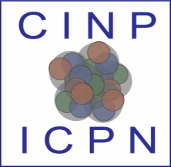Postdoctoral Associate at Massachusetts Institute of Technology (MIT)
Postdoctoral Associate
Massachusetts Institute of Technology (MIT) is inviting applications for up to two postdoctoral research positions with the Laboratory of Nuclear Security and Policy (LNSP) in the department of Nuclear Science and Engineering. LNSP is a multi- disciplinary group studying technology in support of international security. Problems under investigation include the detection of nuclear materials and devices in commercial cargo traffic, nuclear detection in public spaces, nuclear non-proliferation, nuclear disarmament, and new techniques for international treaty verification. For additional information, visit lnsp.mit.edu.
Research: Postdoctoral researchers will support the Zero-Knowledge Warhead Verification program and the Monochromatic Cargo Interrogation program.
The Monochromatic program uses various low energy (∼MeV) nuclear reactions to produce monochromatic and poly- chromatic gamma sources for interrogating and radiographing cargo containers for the presence of nuclear materials without the high doses common in traditional bremsstrahlung-based interrogation methods. For example, (d,nð›¾) and (p,p’ð›¾) reactions on various nuclei will produce highly narrow gamma lines. This approach could revolutionize cargo inspection, which is currently limited by dose considerations, and by providing a mechanism for a better determination of the atomic number of the cargoes.
The Zero Knowledge program uses nuclear resonance fluorescence to take measurements of nuclear warheads that would validate their authenticity without revealing information about their design. The absence of a verification technique has held back the elimination of tens of thousands of Cold War nuclear warheads. The technique implements a physical manifestation of “zero knowledge proofs,†a mathematical method of proving an assertion to be true without revealing any of the underlying information. This method resolves a long-standing problem associated with electronic information barriers, which are vulnerable to various hacks and exploits.
Responsibilities: The postdoctoral researcher will work with faculty and graduate students in building experiments, doing simulations and data analysis, and developing detectors. The postdoc will be encouraged to propose innovative ideas of their own and to participate in proposal writing for projects affiliated with nuclear security.
Qualifications: The ideal candidate should have the following background and qualifications:
PhD in experimental nuclear physics, particle physics, or nuclear engineering
An interest in nuclear security and social issues
Strong computational skills in a Linux/Unix based environment:
Fluency with C/C++ . Knowledge of higher level languages such as Python, Perl, etc. is a plus.
Extensive experience performing data analysis with the ROOT toolkit
Fluency with the Geant4 toolkit and a strong understanding of Monte Carlo methods. Knowledge of MCNP is a plus.
Familiarity with standard methods of nuclear radiation detection (~MeV neutrons and gammas), including scintillation detectors, HPGe detectors and readout electronics
Experience with digital data acquisition systems, preferably VME. Knowledge of CAEN systems is a plus.
Duration: 2 years, extendable to 3.
For questions or additional information contact aregjan@mit.edu.
Applications should be submitted through the MIT Jobs Page: http://jobs.mit.edu/ position number 11775.
